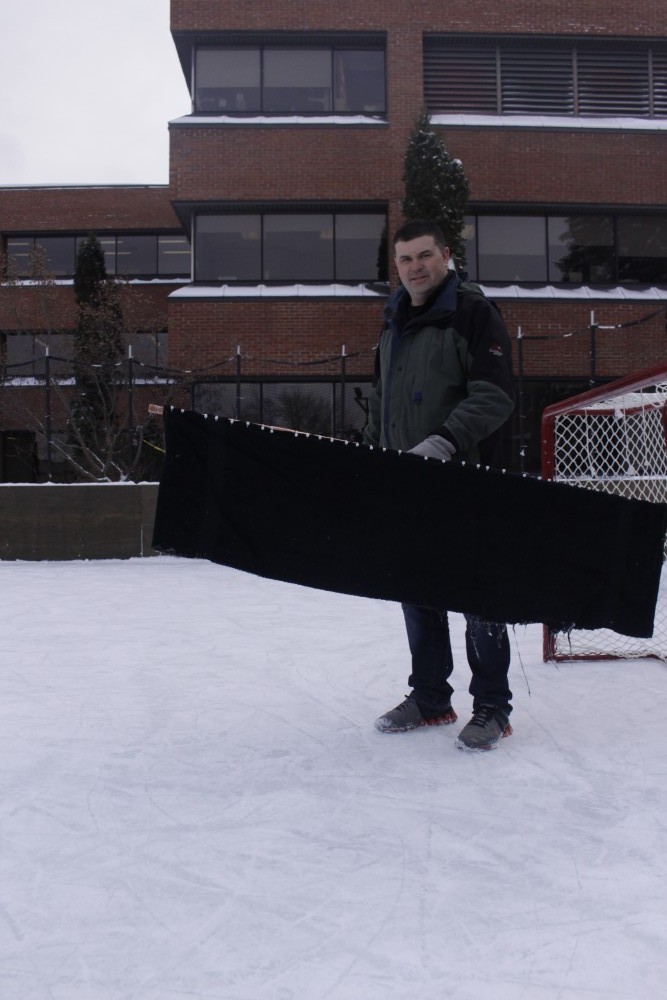
It’s probably the lowest budget ice-resurfacer you have ever seen, but it has been keeping the ice on Algonquin’s rinks smooth all winter.
Radio broadcasting coordinator Dan Mellon has created a portable ice-resurfacing machine that is currently in use at the AC Ice Court.
The machine is been in use for most of the winter. There was even a span of time when it was used for nearly two weeks straight.
The resurfacer is able to create a new surface that takes less time than a fire hose. Mellon estimates that resurfacing the rink takes about six minutes and is ready to use immediately after.
Mellon has been building rinks for nearly 12 years and found it difficult to get a quality surface with a hose.
“One of the problems that I always found when I was flooding outdoor rinks was you put too much water on, there’s too much air in the water. The ice was never really good,” said Mellon.
Mellon was able to take his knowledge of how a larger ice resurfacer worked and scale it down into a hand held machine.
“I sort of devised the same thing,” he said. “Just using some pipe and a towel and little holes in the pipe, I managed to recreate it.”
The machine used out on the rink is the seventh that Mellon has made, and he can put it together in his own kitchen.
“Basically it’s just common parts found at the hardware store,” said Mellon. “The whole thing cost me just under $100 to make.”
Using the resurfacer is what has allowed Dan Cuddy, Information & Outreach Liaison at the AC Hub, to create a smooth surface. Cuddy, who is in charge of maintaining the rink, uses the resurfacer to smoothen out the ice, instead of simply blasting water on top of it.
“Each time you do it, it becomes smoother. It’s just adding little bits of water each time,” said Cuddy. “Where by the fire nozzle, it’s just bulk amount of water that’s going to go on at one time.”
There are portable resurfacers on the market, but Mellon believes that his method gives him better quality at a better price.
“Similar ones are sold online that are commercially mad but you’re going to pay $200 or $300 for that,” said Mellon. “I don’t think they’re as well constructed. Sometimes they make them out of plastic but I like to use copper. Then you know it’s going to last for many years.”


